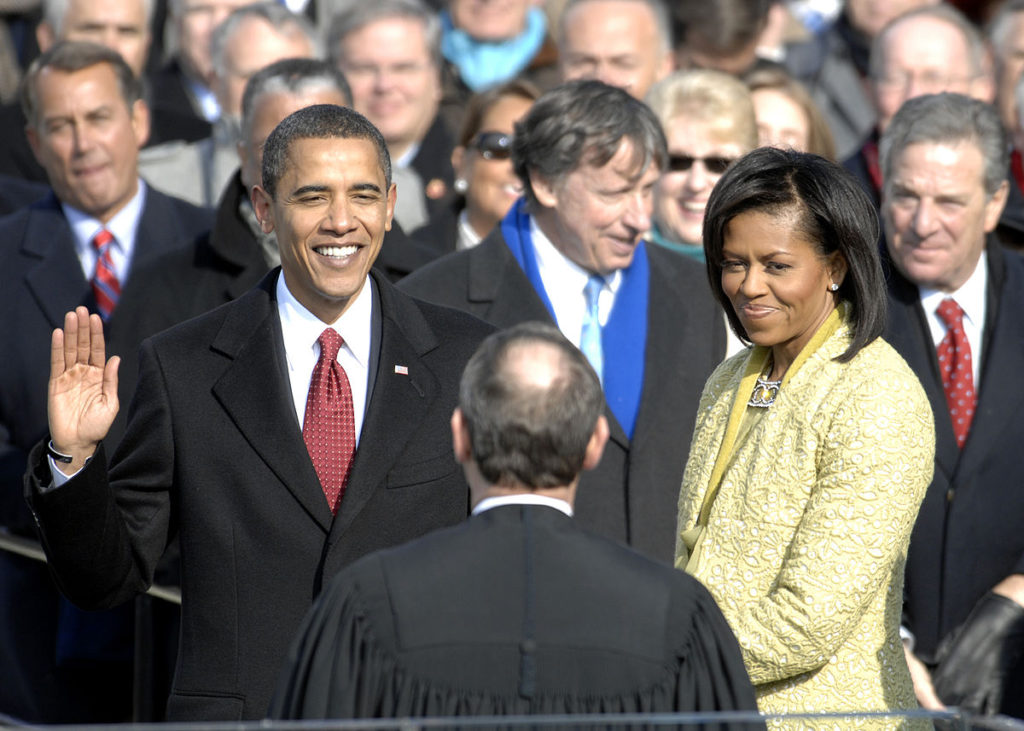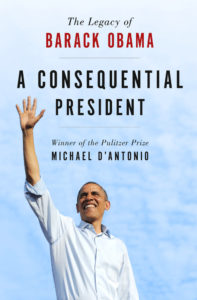by Michael D’Antonio
On the day before he became president of the United States, Barack Obama put on faded jeans and went to the Sasha Bruce House, a shelter for runaway youth on Capitol Hill, where he used a roller to apply blue paint to a bedroom wall. Obama also visited with hundreds of volunteers who had gathered at a Washington-area high school to write letters to American military personnel stationed abroad. And he made an impromptu stop at Walter Reed Medical Center to meet more than a dozen wounded veterans of the wars in Iraq and Afghanistan. The day before the Barack Obama’s inauguration was the national Martin Luther King Jr. holiday, and Obama quoted the great civil rights leader as reporters listened:
“Everybody can be great,” said the president-elect, “ because everybody can serve.”

Barack Obama’s inauguration
In the evening, Barack and Michelle Obama participated in a Washington custom, attending bipartisan events to honor, among others, his campaign opponent Senator John McCain. The senator may be best known for surviving as a prisoner of war in Vietnam, and Obama referred to him as an “American hero.” Obama also praised him for understanding the need for “common purpose and common effort” in an age of intense partisanship.
Barack Obama’s Inauguration
The next day, Obama took the oath of office before a crowd of more than 1.8 million people, which was, by some estimates, the largest ever gathered in Washington. According to a Gallup poll, the number of Americans who felt more hopeful about the future outnumbered those who did not by six to one.
Parts of Barack Obama’s inauguration address, including a firm commitment to security, won vigorous applause even from the Republicans seated on the platform that had been built beside the US Capitol. Other items in his speech appealed mainly to the 53 percent of voters who had cast ballots for him. He repeated many of his campaign promises, including health care reforms, an increase in clean energy production, and closing the controversial Guantánamo Bay prison camp. But clearly this president knew he was taking office at a moment of crisis, and he dwelled at length on the three big challenges facing the country: the most severe economic recession since 1929, the terrorism of Islamic extremists, and climate change. He said:
“That we are in the midst of crisis is now well understood.
Our nation is at war against a far-reaching network of violence and hatred.
Our economy is badly weakened, a consequence of greed and irresponsibility on the part of some, but also our collective failure to make hard choices and prepare the nation for a new age. Homes have been lost; jobs shed; businesses shuttered. Our health care is too costly; our schools fail too many; and each day brings further evidence that the ways we use energy strengthen our adversaries and threaten our planet.
These are the indicators of crisis, subject to data and statistics. Less measurable but no less profound is a sapping of confidence across our land—a nagging fear that America’s decline is inevitable, and that the next generation
must lower its sights.Today I say to you that the challenges we face are real. They are serious and they are many. They will not be met easily or in a short span of time. But know this, America—they will be met.”

